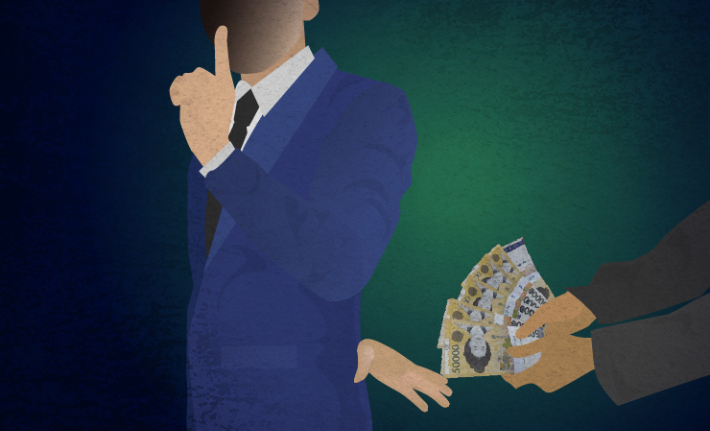Breaking News: Hak Ja Han, Jeong Won-joo, and Yoon Young-ho Accused Again for Bribery
Breaking News: Hak Ja Han, Jeong Won-joo, and Yoon Young-ho Accused Again for Bribery
Another wave of controversy has struck the leadership of the Unification Church. As of today, Hak Ja Han, Jeong Won-joo, and Yoon Young-ho are facing new accusations of offering bribes. If you’ve been following the developments, this update adds yet another layer to an already complicated narrative. Let’s take a closer look at what’s happening behind the scenes and what it could mean moving forward.
Table of Contents
Details of the New Bribery Accusation
According to prosecutors, Hak Ja Han and senior Unification Church leaders are being accused again of offering illicit financial incentives to public officials in exchange for favorable treatment. The allegations revolve around the suspected transfer of funds during critical policy deliberations that involved religious organizations. While details remain under investigation, sources suggest that the new evidence includes recorded communications and transaction logs, pointing toward a well-organized bribery scheme.
Legal Framework and Past Cases
| Case | Year | Outcome |
|---|---|---|
| Moon Organization Political Fund Case | 2012 | Fines imposed |
| 2020 Special Audit Allegations | 2020 | Dismissed due to lack of evidence |
South Korea’s Anti-Graft Law, often referred to as the "Kim Young-ran Act," outlines strict prohibitions against offering money or gifts to public officials. The current allegations will be examined within this legal framework, along with relevant precedents that could influence judicial interpretations.
Public Reaction and Media Coverage
- Social media has erupted with demands for transparency and accountability.
- National newspapers like *Chosun Ilbo* and *Hankyoreh* have featured in-depth analyses.
- Political commentators are divided on the implications for religious autonomy.
The public’s response reflects both skepticism and urgency. While some express concern about religious freedom, others are calling for stricter oversight and more thorough investigations.
Implications for the Unification Church
These renewed legal troubles could severely impact the Unification Church’s operations, both in South Korea and internationally. Membership morale has reportedly dipped, and some donors are reconsidering their financial support. If proven true, the accusations could lead to governmental reviews of the Church’s legal status, potentially invoking laws that limit religious organizations engaged in criminal conduct. This scenario may also trigger a wave of internal reforms to regain public trust.
Expert Opinions and Legal Analysis
| Expert | Affiliation | Comment |
|---|---|---|
| Dr. Kim Seo-joon | Seoul National Univ. | "Legal scrutiny may intensify if similar financial misconducts are uncovered." |
| Prof. Laura Kim | Yonsei Law School | "Courts may demand extensive accountability due to prior warning cases." |
“Religious institutions involved in financial misconduct often face harsher penalties, as highlighted in *The Journal of Church Law*, 2021.”
— *The Journal of Church Law*, 2021
This emphasizes the growing expectation for religious transparency. Legal experts agree that the judiciary is unlikely to tolerate repeat offenses, and additional penalties may follow if patterns of malpractice are established.
What Lies Ahead: Predictions and Scenarios
- A potential full-scale investigation into the Church’s financial records.
- Heightened calls for religious finance regulation.
- Internal leadership changes within the Unification Church.
These possibilities highlight the turbulent future facing the organization. Observers suggest that proactive reform and transparent communication may be the only way forward.
Hak Ja Han, Jeong Won-joo, and Yoon Young-ho are named as key individuals in the recent legal complaint.
The case could involve breaches of South Korea’s Anti-Graft Law, also known as the Kim Young-ran Act.
Major national outlets have dedicated extensive coverage, including editorials and op-eds.
Yes, if the accusations are substantiated, it may prompt governmental reassessment of their nonprofit status.
More investigations, possible indictments, and increased media scrutiny are highly likely.
In light of these explosive allegations, the coming days will be critical for the Unification Church and its leadership. Whether these claims hold up in court or not, the ripple effects have already begun. From media scrutiny to public discourse and institutional accountability, we are witnessing a moment of reckoning that could reshape the role of powerful religious organizations in Korean society. Stay tuned as this developing story continues to unfold with potential global ramifications.
Tags: bribery, Unification Church, Hak Ja Han, corruption, Korean law, media coverage, legal case, religion and politics, public reaction, nonprofit regulations




Comments
Post a Comment